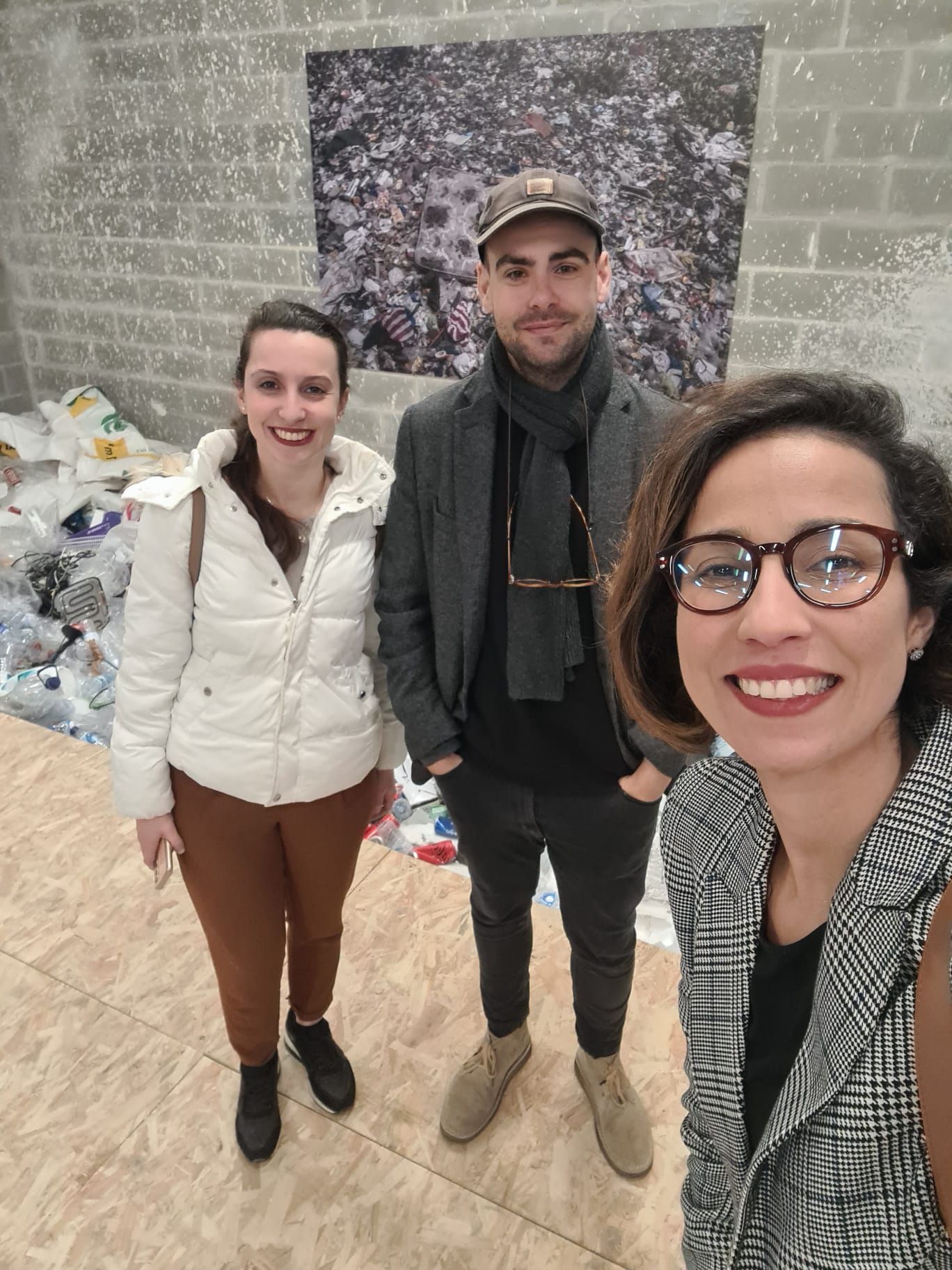There is a river where in many parts you cannot see water, only rubbish. This river is called Pasig and is located in the Philippines and it was precisely this river that the Portuguese photojournalist, Mário Cruz, decided to photograph and which earned him the World Press Award in the Environmental Category.
When entering MAR shopping, which hosts this exhibition, we come across several photographs by Mário Cruz, but also a lot of rubbish on the floor, especially plastic, which aims to raise visitors’ awareness to rethink their consumption. “I hope that those who go through this exhibition leave in a different way and that they can identify some of these objects as their own”, he said.
Environmental disaster
Usually described as a very dark future scenario, Mário assures us that “Living Among What’s Left Behind” is not about the future, it’s about the present and for many people also about the past. “For thousands of families we’re talking about the past, because this is a problem that’s been going on for decades. There are people who were born in this situation”.

As we can see in the photographs, in Manila, the capital of the Philippines, where the river is located, there is a big problem of inequality. In the same city there are big buildings and hotels, but there are also people living in extreme poverty. To survive, they try to find recyclable materials in the river. “The materials they manage to find, they give them to be recycled in Happy Land (which is a curious name) and they get money for it. We are talking about 1 euro a day. These materials are then sold to recycling companies. This is the process that takes place in Manila,” he said.
This means that Pasig river, which was considered biologically dead in the 1990s, is still a means of subsistence for these families living on an income of 30 Euros a month, which they get through the process of selling recyclable waste they find in the rubbish, on a river where it is possible to walk from one bank to the other over rubbish.
Children also help their families to survive and participate in this rubbish collection. According to Mário, it is very common to see children walking through the rubbish in the river trying to get something to help their family to eat another day.
When I asked if there was a solution in sight for these people, Mário told me that unfortunately the problem is also the solution for these locals who have no living conditions, no job and no other source of income. Even the makeshift houses they live in are made out of the rubbish they find in the river.

However, Mário’s work got a lot of exposure and allowed a teenager suffering the side effects of pollution of his own lungs to continue to breathe. “There is a teenager with his lungs completely blocked because he started going into the river to pick up objects when he was 5 years old. He was 16 when I met him and he had to receive oxygen 24 hours a day, it’s a very expensive treatment because it costs 300 euros a month and the family survives on 30 euros a month, but luckily because of the photography work and also because of the commission that followed me, he got the support he needed,” Mário said.
Awareness
Mário Cruz is a Portuguese photojournalist who creates work focusing on injustice and social problems who believes that his photographs are proof that these situations, sometimes geographically distant, can reach our hearts. “Once the evidence arrives, there is no way we can ignore it”.
For this reason, Mário Cruz calls for everyone to share his work. Contrary to many other exhibitions, Mário says that everyone is allowed to take pictures of his work and use his pictures because “that’s why they exist. This exhibition is an alert, not only in the sense that this exists, but it is an alert of denunciation, it is something that I hope will create in people the awareness that something needs to be done. I hope visitors will share what they have seen here. Photography has a unique power, it is a universal language”, he said.
According to Mário, having this exhibition in a place that is linked to consumption is a challenge. “The exhibition has been in several places, but this is the first time it is in a commercial space. It is important that when I consume these things, I think every time I throw them away, if they cannot be reused or if they cannot be used for someone else,” he pointed out.
If you would like to see this exhibition, please visit MAR Shopping from 12h to 20h on floor 1 in the outdoor dining area.
Paula Martins is a fully qualified journalist, who finds writing a means of self-expression. She studied Journalism and Communication at University of Coimbra and recently Law in the Algarve. Press card: 8252











